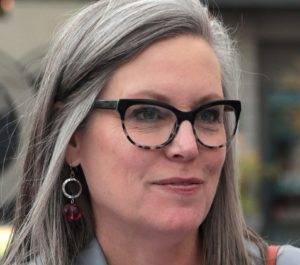Democratic Governor Katie Hobbs of Arizona made history by signing a bill to repeal a Civil War-era ban on most abortions. This significant move marks the end of a long-standing restriction on reproductive rights in the state. The 1864 law, reinstated by the state Supreme Court in early April, prohibited all abortions except those deemed necessary to save a patient’s life. Governor Hobbs, along with abortion rights advocates, sees this repeal as a crucial step in safeguarding reproductive health care in Arizona. However, the repeal won’t take effect until 90 days after the legislative session ends, typically in June or July.
Governor Hobbs emphasized the outdated nature of the ban, highlighting its origins in a time when women lacked basic rights and autonomy. She condemned the law as a relic of a bygone era, passed by an all-male legislature during a tumultuous period in American history. Despite facing opposition, including emotional arguments from Republican lawmakers invoking biblical references and graphic descriptions of abortion procedures, Hobbs remained steadfast in her commitment to repealing the archaic legislation.
Legislative Battles and Grassroots Support
The journey to repeal the 1864 abortion ban was fraught with political maneuvering and grassroots activism. Despite being in the minority, Democratic lawmakers, with the support of a few Republicans, successfully pushed the repeal through the Legislature in a matter of weeks. This bipartisan effort underscores the growing momentum behind reproductive rights advocacy in Arizona.
The signing ceremony, attended predominantly by women lawmakers, was a moment of celebration and solidarity. Lawmakers exchanged congratulations and took selfies, highlighting the historic nature of the event. However, uncertainty looms over the enforcement of the 1864 law in the interim period before the repeal takes effect. While anti-abortion groups argue for immediate enforcement, the legal landscape remains unclear, leaving reproductive rights advocates on edge.
Implications and National Context
The repeal of Arizona’s 1864 abortion ban has broader implications for the national conversation on reproductive rights. As states across the country grapple with increasingly restrictive abortion laws, Arizona’s move signifies a potential shift towards greater reproductive freedom. However, challenges persist, with states like South Dakota and Florida enacting or proposing stringent abortion restrictions.
In Arizona, the repeal sets the stage for a new abortion law to take effect, limiting the procedure after 15 weeks of pregnancy. The transition period between the repeal and the implementation of the new law raises concerns about access to abortion services and legal ambiguity. As the debate over reproductive rights continues to unfold, Arizona stands as a battleground where the fight for autonomy and choice reverberates across the nation. : Arizona Supreme Court Set Deadlines for Briefings on Abortion Ban Repeal
The Arizona Supreme Court has set deadlines for briefings on the motion to repeal the near-total abortion ban in the state. This decision comes after former Democratic state Rep. Athena Salman celebrated the approval of the repeal she initially proposed in 2019. The repeal marks a significant victory for abortion rights advocates, particularly amidst the nationwide discourse surrounding reproductive rights following the overturning of Roe v. Wade.
The ban had been blocked due to the landmark U.S. Supreme Court decision, which guaranteed the constitutional right to abortion nationwide. However, then-Attorney General Mark Brnovich, a Republican, made a case for enforcing the 1864 ban, leading to legal limbo until the Arizona Supreme Court intervened. Salman, who resigned in January to lead an abortion rights group, emphasized the repeal’s importance for future generations, stating that it would eliminate the restrictions and interference that women have endured.
Impact on Arizona’s Reproductive Rights
Democratic leaders, including Arizona Rep. Stephanie Stahl Hamilton, played a pivotal role in repealing the ban. Hamilton, drawing from her upbringing on the Navajo Nation, highlighted the importance of reproductive rights, especially in underserved communities where access to healthcare is limited. The repeal holds particular significance in light of the restrictions imposed by the Indian Health Service, operating under the Hyde Amendment, which limits federal funding for abortions except in specific cases.
President Joe Biden’s victory in Arizona, attributed in part to voters’ concerns over reproductive rights, underscores the political significance of the issue. However, the repeal has sparked division among Republican leaders, with some considering alternative proposals and potential ballot measures. Republican Lawmaker Shawnna Bolick faced jeers and interruptions during her explanation of support for the repeal, reflecting the polarized nature of the debate within the state legislature.
Future Prospects and Healthcare Access
The repeal has been hailed as a positive development by healthcare professionals, including Dr. Ronald Yunis, a Phoenix-based obstetrician-gynecologist who provides abortions. Yunis emphasized the importance of ensuring access to healthcare services within the state, particularly for women who might otherwise need to travel long distances for medical care. Despite the repeal, concerns remain regarding ongoing efforts to protect women’s rights and access to reproductive healthcare, with expectations placed on state leaders to uphold these fundamental rights moving forward.
Table of Contents
Discover more from OGM News NG
Subscribe to get the latest posts sent to your email.














